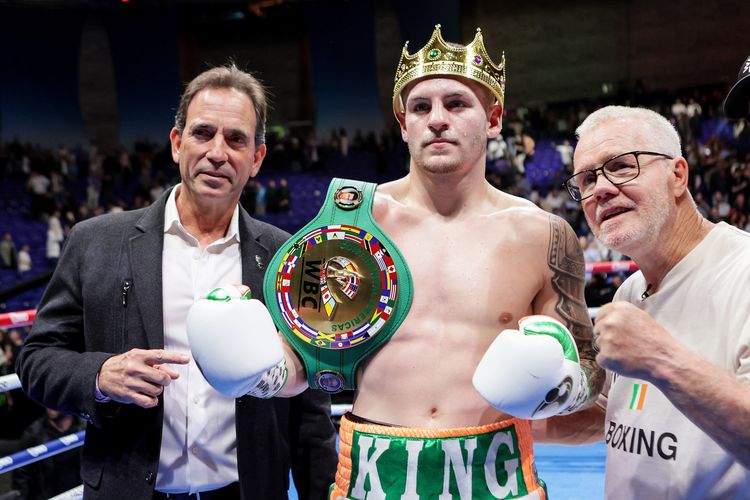[caption id="attachment_67233" align="aligncenter" width="600" caption="Bert Jansch in 2006."]
I'm fortunate to have two reliable outlets for my writing about Irish traditional music: the Irish Echo, the USA's most widely read Irish-American newspaper, and The Wall Street Journal, the largest newspaper in North America. In December I will mark my 20th anniversary of writing for the Irish Echo, and in March I will mark my 17th anniversary of writing for The Wall Street Journal. I'm also lucky to have receptive, supportive editors who like my work and make it easy for me to do it, as well as readers who are both loyal and skeptical.
Before you start gagging over those statements, I assure you that I'm not trying to curry favor here with the newspapers, the editors, or the readers. Those are just the facts.
But the same facts raise a question: Why aren't most other U.S. newspapers making even a minimal effort to cover Irish traditional musc apart from St. Patrick's Day or March?
In his October 2011 Jazz Times column "The Gig," Nate Chinen asserts that "robust criticism is crucial to the life of any art form." Flowing from that premise, his column decries "the perpetual shortage of influential female jazz critics" and the lamentable, false assumption that "a female critic has to compromise, masking her gender or softening her authority."
I concur with Chinen's points but with this demurral: Whether written by too many men or too few women, jazz criticism is still widespread and ingrained at major newspapers, even after the contraction of overall arts criticism during the past few years.
Chinen himself is fortunate to be one of two mainstay jazz critics (Ben Ratliff is the other) at the New York Times. Several other major dailies still have at least one dedicated jazz critic, and a number of large newspapers have more than one.
I love jazz, but, as a genre, it occupies no more than a niche in the larger commercial marketplace of music. The same is true of classical, bluegrass, old-timey, Cajun, zydeco, blues, folk, and, yes, Irish traditional music. No one will confuse the popularity of those genres with the popularity of rock, pop, and country.
Aside from the issue of popularity, the other reasons I've heard for the disappearing newspaper space accorded Irish traditional music include declining public interest in all "ethnic" music, economic retrenchment, impact of the Internet and social media, vacuum of cultural understanding and appreciation, critical backlash against anything remotely redolent of "Riverdance," upsurge in intelligence-lowering treacle that smothers anything genuine, scarcity of scribes more than glancingly acquainted with Irish traditional music, and presumed lack of cachet or sophistication in what some still denigrate as "bog music."
Then there's the rawest rub of all: Who cares?
I care, and you care. Otherwise, I wouldn't be writing about Irish traditional music, and you wouldn't have read this page this far.
Several years ago, a female critic who wrote regularly and well about Irish traditional music for a U.S. newspaper quit her position mainly because it paid too little. Her prose clearly indicated that she enjoyed writing about the music, but the effort and time didn't match the remuneration. It was too far below a living wage. This is not news to newspeople, though it may be news to readers.
She once asked me to critique a sample of her Irish traditional music writing, and apart from a few, perhaps niggling points, I had no suggestions for improvement.
Her writing was good, combining an unclichéd, unimitative style, insight, humor in the service of elucidation rather than ego, research reaching back farther than the latest press release, and enthusiasm tempered by a reliable dung detector.
I still stay in touch with her, and she still writes on occasion. But it pains me to see someone with her aptitude and ability only writing sporadically about Irish traditional music.
Good critics in any musical genre are in perpetually short supply. Over the years, a number of Irish traditional music critics had the knowledge and expertise but lacked style or, more inexcusably, never learned to write. There was no "music" in their words about music. Other critics had style and a sure grasp of writing fundamentals but offered scant substance. Too many in either camp aped the style and the approach to substance by long-term trad writers. This imitative writing usually began in flattery, flattened into tedium, and ended in laziness.
Where do I think I fall within the spectrum? I'll answer this way: I wince at every solecism, puzzle over why I didn't make a point clearer or more forceful, and second-guess my choices. (Ask Eileen Murphy, my long-term editor at the Irish Echo, how often I submit a revision just minutes after I submit the "final" text.) As a journalist mentor once told me: "Mediocre writers are always happy with their results. Serious writers aren't." The same is true of Irish traditional musicians.
I take words seriously because I want you to take them seriously. I've seen the damage done by carelessness, and I loathe the insidious spread of condescension and distortion not only in music writing but also in our national discourse.
Irish traditional music writing at its best aspires to the level of Irish traditional music at its best: confident, compelling, and distinctive. To write well about it is to struggle, not to settle. That struggle should become enjoyable to the writer and never become detectable to the reader.
In his book "Worstward Ho," Dublin-born writer Samuel Beckett gives this advice: "Try again. Fail again. Fail better." I keep his words in mind as I try to find mine. So I continue to struggle and to enjoy. And I will enjoy struggling to get my female critic friend back into the fold.
Bert Jansch passes away
While America's media fixated on the October 5 death from cancer of Apple co-founder Steve Jobs at age 56, I pondered the October 5 death from cancer of Glasgow-born acoustic guitarist Bert Jansch at age 67.
My initial encounter with Jansch's music came through Pentangle and "Sweet Child," the band's 1968 album serendipitously discovered by me in the large cut-out bin of a record shop in Philadelphia. (I miss fanning through old LP's in musty retail stores in the hope of alighting upon overlooked aural treasure.)









